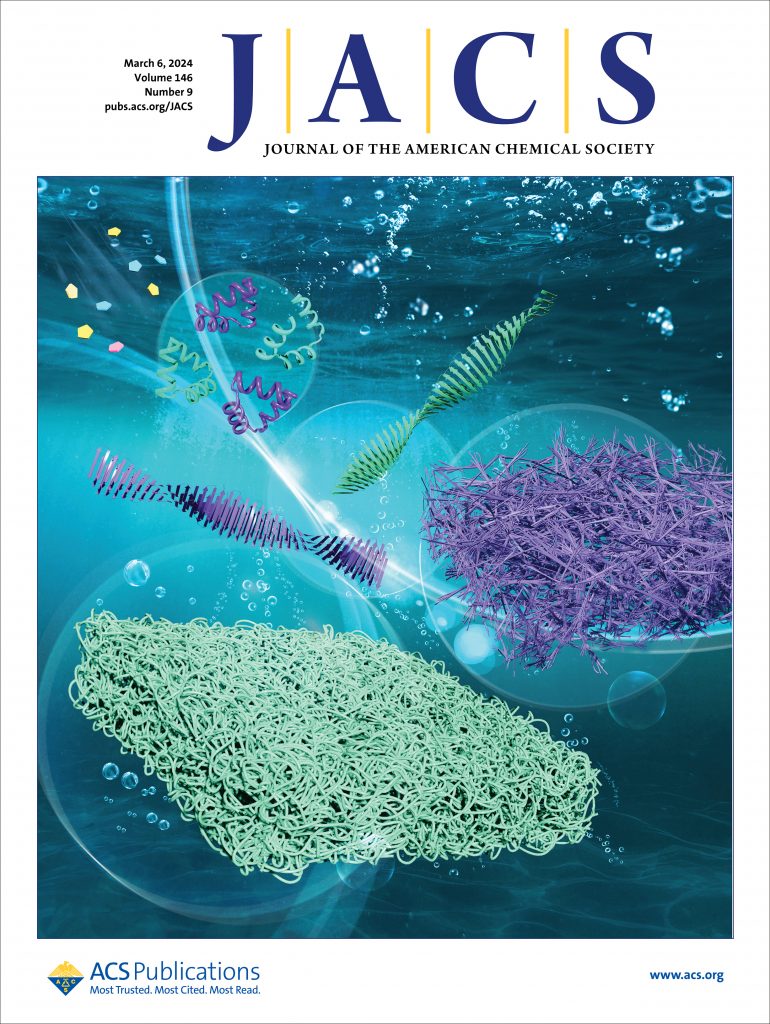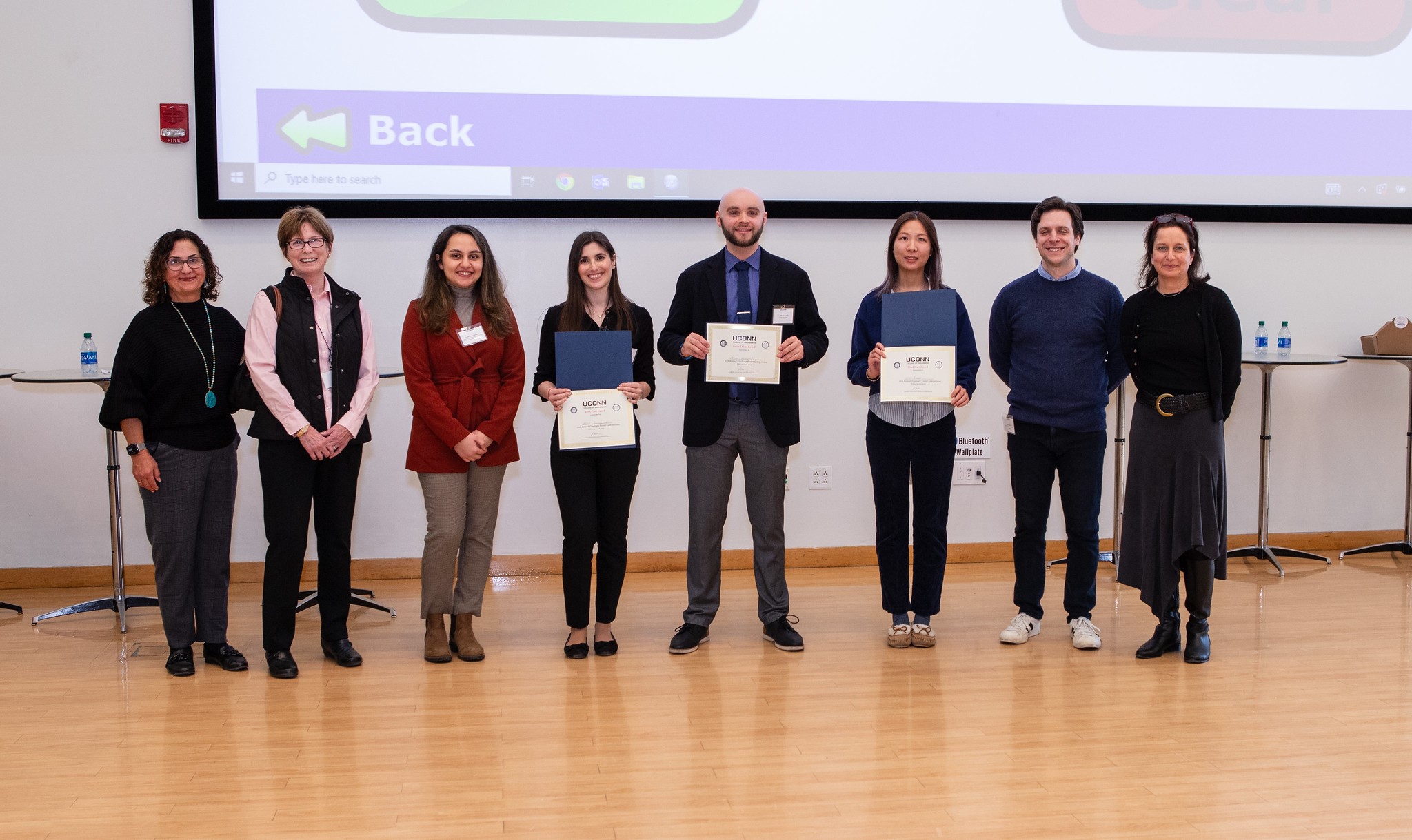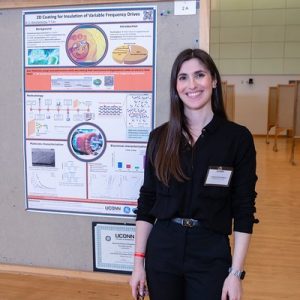 In a collaborative effort, researchers from the University of Connecticut (led by Profs. Yao Lin, VJ Kumar and Xudong Yao) and the University of Illinois at Urbana-Champaign (led by Prof. Jianjun Cheng) have made an advance in the rational design of synthetic polypeptides to develop filament-based hydrogels. The work, conceptualized and realized by the graduate students Tianjian Yang (UConn) and Tianrui Xue (UIUC), has been published in the Journal of the American Chemical Society (JACS) and featured as the cover of the March 6 issue.
In a collaborative effort, researchers from the University of Connecticut (led by Profs. Yao Lin, VJ Kumar and Xudong Yao) and the University of Illinois at Urbana-Champaign (led by Prof. Jianjun Cheng) have made an advance in the rational design of synthetic polypeptides to develop filament-based hydrogels. The work, conceptualized and realized by the graduate students Tianjian Yang (UConn) and Tianrui Xue (UIUC), has been published in the Journal of the American Chemical Society (JACS) and featured as the cover of the March 6 issue.
Building on the recent advancement of autoaccelerated ring-opening polymerization of amino acid N-carboxyanhydrides (NCAs), this study strategically explores a series of random copolymers comprising multiple amino acids, aiming to elucidate the core principles governing gelation pathways of these purpose-designed copolypeptides. The team found that the selection of amino acids steered both the morphology of fibril superstructures and their assembly kinetics, subsequently determining their potential to form sample-spanning networks. Importantly, the viscoelastic properties of the resulting supramolecular hydrogels can be tailored according to the specific copolypeptide composition through modulations in filament densities and lengths. The findings enhance our understanding of directed self-assembly in high molecular weight synthetic copolypeptides, offering valuable insights for the development of synthetic fibrous networks and biomimetic supramolecular materials with custom-designed properties.
The research was supported by NSF grants awarded to Yao Lin at UConn (DMR 1809497 and 2210590) and Jianjun Cheng at UIUC (CHE 1905097).



